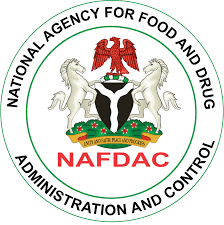By Helen Oji, Abuja
The Federal Ministry of Health and Social Welfare, has commended the Association of Nigeria Health Journalists, for their role in shaping public perception, influencing health- seeking behaviors, and holding stakeholders accountable for their roles in the health sector.
The Permanent Secretary of the Ministry, Daju Kachollom, who was represented by the Head, Policy and Planning , Dr. Angis Ikpe, said the unwavering commitment of the health journalist cannot be overemphasized.
She made this known on Saturday in Abuja during the 8th annual conference of the Association of Nigeria Health Journalist, (ANHEJ), with the theme : Swap Effectiveness In Addressing Poor Health Outcomes: The Role Of The Media.
Kachollom states that the ministry remain resolute in their mission to ensure that health information, policies, and services are accessible to every Nigerian.
“We recognize that an informed and enlightened populace is fundamental to achieving improved health outcomes. It is in this light that we have embraced the Sector-Wide Approach (SWAp) to ensure “One plan, 0ne budget, One report, and one conversation.”
Kachollom noted the Maternal and Newborn Mortality Reduction Innovation Initiative (MAMII) exemplifies these efforts by offering free cesarean sections to eligible women, thereby improving maternal and neonatal outcomes.
She added that the ministry interventions targeting neglected tropical diseases (NTDS) and non-communicable diseases (NCDs) are meticulously designed to be inclusive and comprehensive, ensuring equitable access to healthcare and leaving no one behind.
“The Ministry reaffirms its commitment to working hand-in-hand with the media in promoting health awareness, countering misinformation, and ensuring transparency and accountability within the health sector,” she said.
Also speaking at the conference, the Chief Executive Officer of the Institute of Human Virology Nigeria (IHVN), Dr. Patrick Dakum, represented by Dr. Charles Imogie, said the media role is critical in strengthen the health sector
He explained that the Institute has provided HIV testing to more than 18 million people, given prevention of mother-to-child transmission services to close to 140,000 women and enrolled more than 680,000 individuals on life-saving antiretroviral treatment since its establishment.
IHVN is also funded by the USAID to rapidly scale up tuberculosis services in Lagos, Osun, Oyo and Osun States. All these contribute to the country’s goals of addressing these diseases.
In his welcome address, the President of ANHeJ, Joseph Kadiri, emphasized the need for journalist to actively engage various stakeholders in solving health challenges in Nigeria.
He said the conference is to examine critical health programs and policies aimed at improving health outcomes for Nigerians. This year’s theme is particularly timely, given the numerous challenges facing Nigeria’s health sector, including inadequate funding, inefficient resource allocation, and poor service delivery.
Kadiri explained that The Sector Wide Approach (SWAp) was introduced to address these challenges by promoting a coordinated and harmonized approach to health sector development.
“Despite the media’s potential to enhance SWAp effectiveness, several challenges persist, including limited access to health information and data, inadequate training and capacity building for health journalists, and insufficient funding for health reporting and programming,” he stressed.
He said to realize the media’s potential in enhancing SWAp effectiveness, it is essential to address these challenges and this conference will delve into critical sub-themes, including President Bola Tinubu’s Health Agenda, health security, maternal and child health services, vaccine-preventable diseases, and local drug production.













